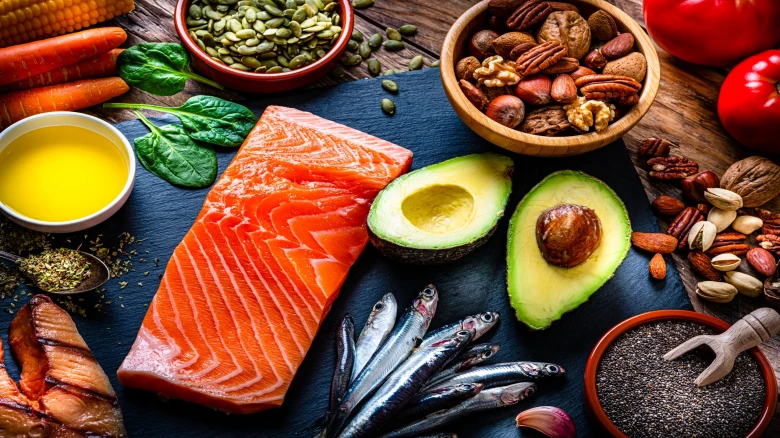North East

Good fats play a significant role in mood regulation, brain clarity, fatigue management, and even weight management.
Digital
Desk: Like it does with protein and carbohydrates, your body needs some fat, a
type of food, for energy, to absorb vitamins, and to protect the health of your
heart and brain. For years, experts have told us that eating fat will raise our
cholesterol, widen our waistlines, and cause a number of other health problems.
But as we now know, not all fats are created equal. Good fats play a
significant role in mood regulation, brain clarity, fatigue management, and
even weight management. You will feel better emotionally and physically, have
more energy, and may even lose weight if you know the difference between
healthy and bad fats and know how to include more healthy fats in your diet.
"The
topic of healthy fats frequently causes a lot of confusion. Adding dairy
products like butter, coconut oil, and eggs, as well as avocado, nuts, and
seeds to meals is often seen as a source of "good fat." In actuality,
dairy is not regarded as a healthy fat. Neither are coconuts or any items made
from them. These fats are saturated fats, which should not be ingested in
significant quantities due to their detrimental effects on health. However, the
situation with dairy is a bit murky since, despite the fact that its fat is
saturated (bad), research indicates that it may not be as harmful to health as
other unsaturated fats. Because of this, it is not regarded as a healthy fat,
but it is also not regarded as unhealthy fat, making it "neutral"
in terms of heart health, according to Liesl Rozario, a Dietitian and Nutrition
Coach.
She
continues, "Eggs are primarily composed of unsaturated fats, but they also
include some saturated fats." They have no discernible impact on heart
health, and the Heart Foundation no longer suggests a weekly intake limit.
"Stick to nuts, seeds, nut/seed oils, avocado, nut butter, and fatty
fish if you want to increase the amount of good fats in your diet."
What
are healthy/good fats?
Other
fats:
Leave A Comment